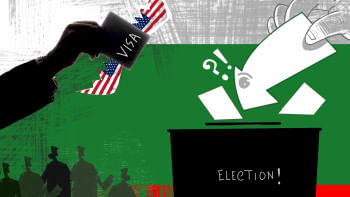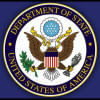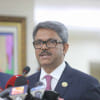The message that US visa restrictions convey

The announcement by the US Department of State that it is taking steps to impose visa restrictions on Bangladeshis is not surprising, considering that the US's intentions to do so had been expressed several months ago. But now it seems quite definite that these restrictions would be implemented, although the State Department has not revealed the names of the individuals restricted. Its spokesperson has said that they include members of law enforcement, the ruling party and the political opposition, current and former Bangladeshi officials, the judiciary and security services.
Such stringent measures, we must say, are embarrassing for an independent, sovereign nation. There are other countries that have come under visa sanctions but those usually came after the national elections, not before. In Bangladesh's case, they arrived several months before the elections. While we may feel disconcerted with such a policy, we must try to understand what has provoked the US to impose these restrictions/sanctions.
The first sanctions came in December 2021 on Rab and seven of its current and former officials for alleged enforced disappearances, extrajudicial killings and torture. In May this year, Washington announced the visa policy applied to actions that undermined the democratic process. It was in view of the allegations of irregularities committed in the 2014 and 2018 elections. So what is the reality on the ground now? Have any of the issues flagged by the State Department been addressed?
While the number of extrajudicial killings and enforced disappearances dramatically reduced after the 2021 announcement of sanctions, they did not disappear completely. Moreover, the government, instead of investigating these crimes, decided to adopt a policy of denial. The intimidation of opposition has continued quite unabashedly in the form of counter rallies by the ruling party on the very day that the BNP decided to hold its rallies; an absurd number of cases filed against opposition leaders and activists just before the elections; hundreds of opposition members arrested and put behind bars as well as excessive force used by police and attacks on peaceful rallies. Add to that the choking effects of the Digital Security Act (DSA) on journalists, activists, human rights defenders, and civilians expressing any kind of dissenting view. The new Cyber Security Act (CSA), which replaces the DSA, continues to retain its provisions restricting freedom of speech.
So while there has been a lot of lip service from the government regarding its commitment to free and fair elections, the actions on the ground do not show this. Leave aside the US visa restrictions – which we find insulting – what is the general perception of our people on the prospect of the coming election being free and fair? The overwhelming view, if an open poll was taken, would, we feel, be of serious doubt. Thus, we should take more credible steps that will raise public faith in the polls being free and fair, not because of the visa restriction but for our own sake.

 For all latest news, follow The Daily Star's Google News channel.
For all latest news, follow The Daily Star's Google News channel. 










Comments